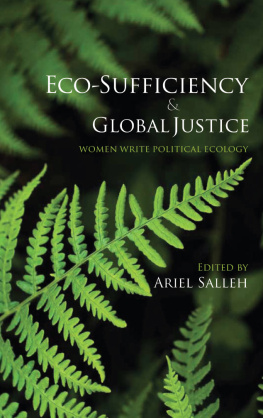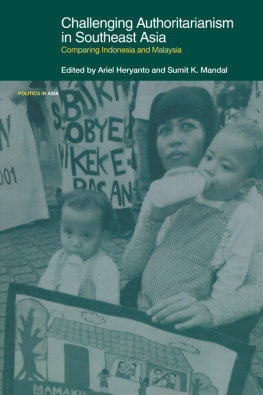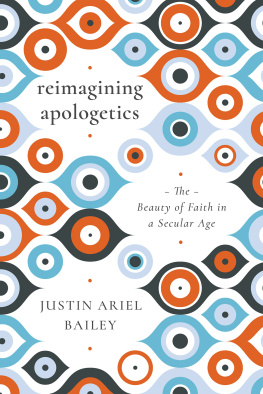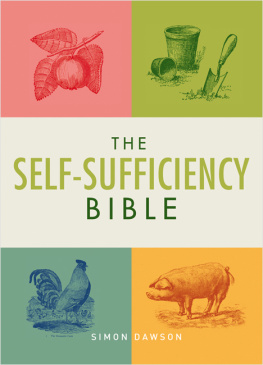Ariel Salleh - Eco-Sufficiency & Global Justice
Here you can read online Ariel Salleh - Eco-Sufficiency & Global Justice full text of the book (entire story) in english for free. Download pdf and epub, get meaning, cover and reviews about this ebook. publisher: Pluto Press, genre: Science. Description of the work, (preface) as well as reviews are available. Best literature library LitArk.com created for fans of good reading and offers a wide selection of genres:
Romance novel
Science fiction
Adventure
Detective
Science
History
Home and family
Prose
Art
Politics
Computer
Non-fiction
Religion
Business
Children
Humor
Choose a favorite category and find really read worthwhile books. Enjoy immersion in the world of imagination, feel the emotions of the characters or learn something new for yourself, make an fascinating discovery.
- Book:Eco-Sufficiency & Global Justice
- Author:
- Publisher:Pluto Press
- Genre:
- Rating:4 / 5
- Favourites:Add to favourites
- Your mark:
- 80
- 1
- 2
- 3
- 4
- 5
Eco-Sufficiency & Global Justice: summary, description and annotation
We offer to read an annotation, description, summary or preface (depends on what the author of the book "Eco-Sufficiency & Global Justice" wrote himself). If you haven't found the necessary information about the book — write in the comments, we will try to find it.
Eco-Sufficiency & Global Justice — read online for free the complete book (whole text) full work
Below is the text of the book, divided by pages. System saving the place of the last page read, allows you to conveniently read the book "Eco-Sufficiency & Global Justice" online for free, without having to search again every time where you left off. Put a bookmark, and you can go to the page where you finished reading at any time.
Font size:
Interval:
Bookmark:
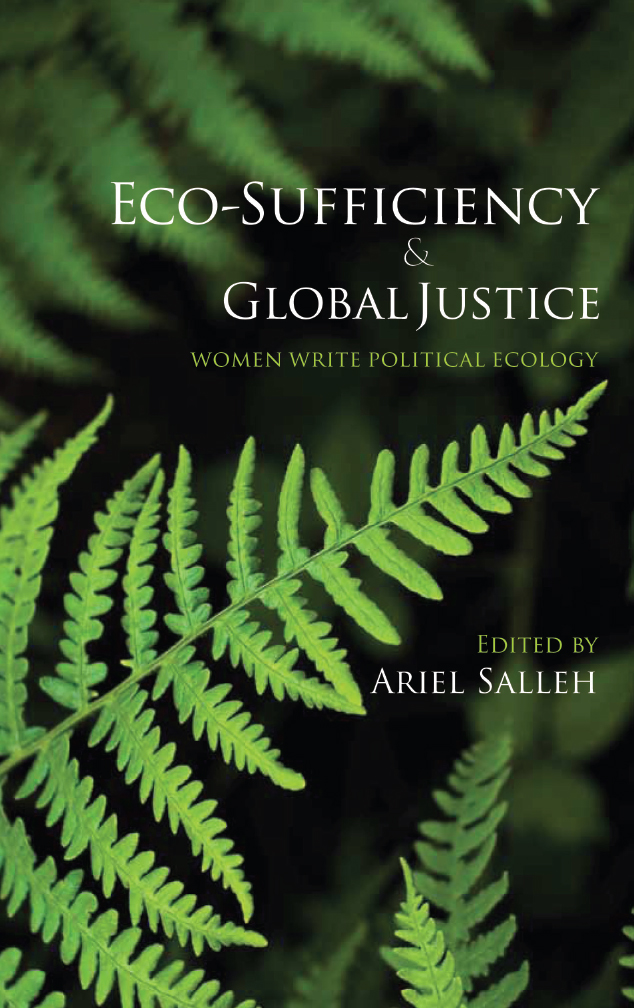
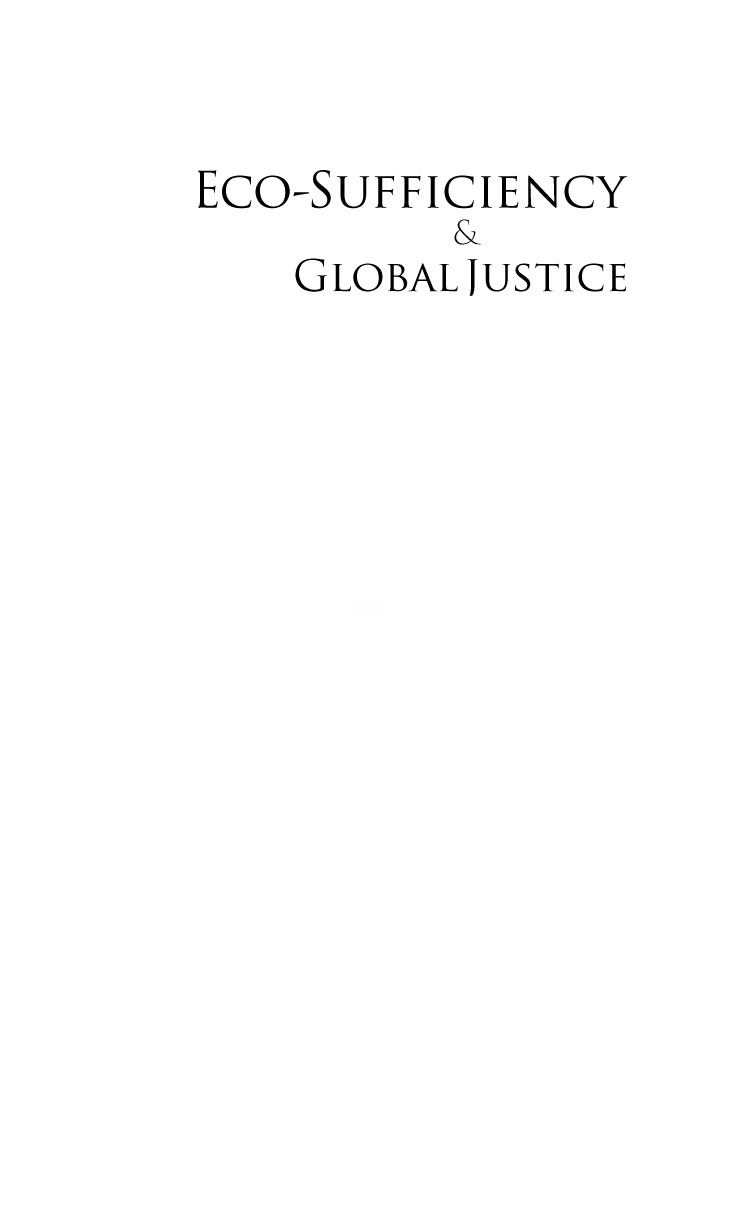
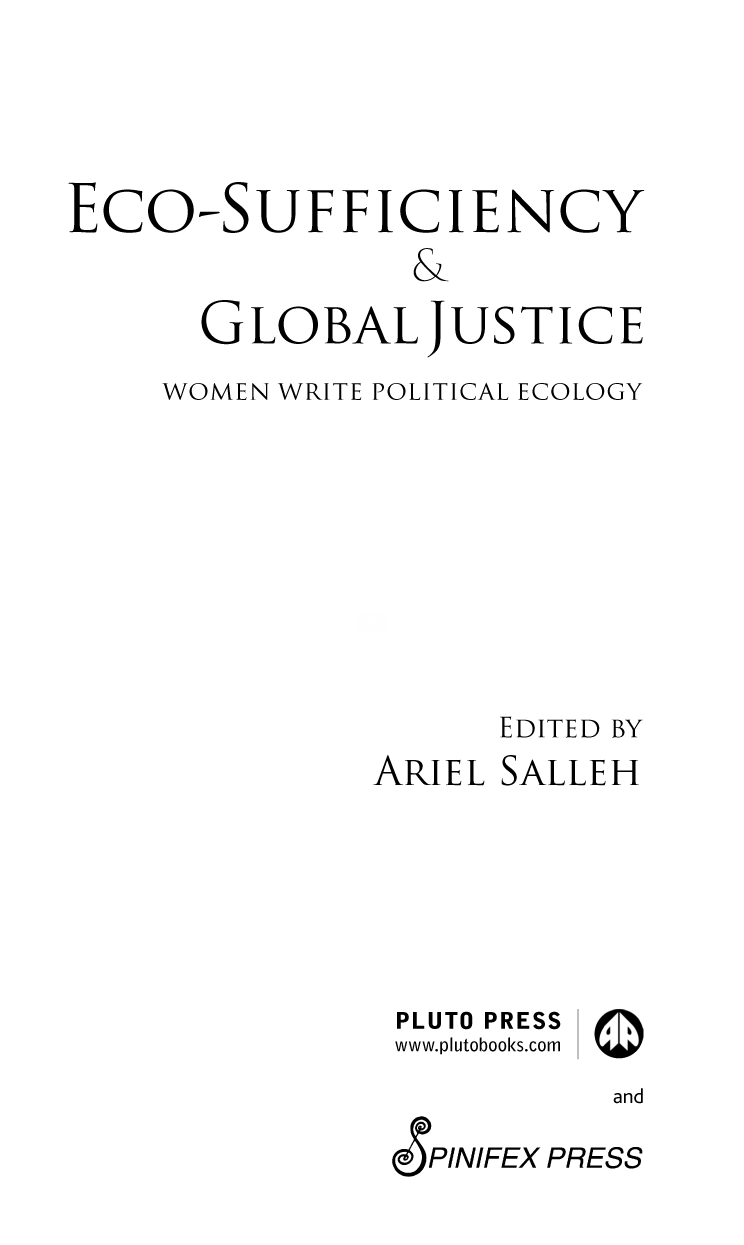
First published 2009 by Pluto Press
345 Archway Road, London N6 5AA and
175 Fifth Avenue, New York, NY 10010
www.plutobooks.com
and
Spinifex Press, PO Box 212 (504 Queensberry St)
North Melbourne Vic 3051 Australia
www.spinifexpress.com.au
Distributed in the United States of America exclusively by
Palgrave Macmillan, a division of St. Martins Press LLC,
175 Fifth Avenue, New York, NY 10010
Copyright Ariel Salleh 2009
The right of the individual contributors to be identified as the authors of this work has been asserted by them in accordance with the Copyright, Designs and Patents Act 1988.
British Library Cataloguing in Publication Data
A catalogue record for this book is available from the British Library
ISBN 978 0 7453 2864 5 Hardback
ISBN 978 0 7453 2863 8 Paperback (Pluto Press)
ISBN 978 1 876756 71 0 Paperback (Spinifex Press)
Library of Congress Cataloging in Publication Data applied for
This book is printed on paper suitable for recycling and made from fully managed and sustained forest sources. Logging, pulping and manufacturing processes are expected to conform to the environmental standards of the country of origin. The paper may contain up to 70 per cent post consumer waste.
10 9 8 7 6 5 4 3 2 1
Designed and produced for Pluto Press by
Chase Publishing Services Ltd, Sidmouth, England
Typeset from disk by Stanford DTP Services, Northampton, England
Printed and bound in the European Union by
CPI Antony Rowe, Chippenham and Eastbourne
As I write this, sunlight glistens through morning rain and casuarinas bow to a soft north east breeze. Who ever would guess that life on earth is falling into precarity threatened by global free trade, militarism, climate change, sexual violence, genetic and nano technologies. For this reason, these essays are a call to people who care: community leaders, researchers, students of political ecology, ecological economics, environmental ethics, global studies, movement politics, or critical geography. Others know the call already: activists in the World Social Forum, Via Campesina, Seattle to Brussels Network, or Ecological Debt campaign. The arguments will resonate too, with supporters of The Commoner project; with Green Left Weekly; with Women in Black, Code Pink, Women and Life on Earth, the World March of Women; and with friends who try to keep big NGOs and party politicians on track. The anthology has its roots in my earlier book Ecofeminism as Politics, part of an ongoing project to rethink humanitynature relations with an embodied materialist epistemology. Here, a group of authors exposes the costs of othering bodies and ecosystems. They show how capitalist globalisation carries forward cultural dualisms, which in turn, sustain primal forms of patriarchal power. Even climate change is gendered and racialised in its causes, effects, and solutions. But gender and ethnicity are not just descriptors of victimhood; far from it, ecological feminists recognise difference as a source of innovative leadership for global alternatives.
Today, as the classic texts in political economy are giving way to political ecology, many scholars are unsure how to turn their human-centred study into a wider nature-oriented one. New conceptual tools are needed for describing the humanitynature interface, working constructs such as embodied debt meta-industrial labour eco-sufficiency and metabolic value. At the same time, the transdiscipline of ecological economics often appropriated as a tool of governance (read social control) demands special attention. A hybrid of economics and sustainability science, ecological economics was until recently a rather ad hoc field, with little epistemological depth or socio-political reflexivity. Nevertheless, some of its leading practitioners are now responding to globalisation and its crises by boldly linking their research to NGO work. This anthology enjoins that transformative agenda, counter-balancing deconstructive critique with reconstructive remedies. It is inspired by life at the peripheries of power, where autonomous and ecologically sound models of economic provisioning are practised. And its authors are convinced that an inclusive definition of global justice will depend on internal capacity building and structural adjustment in the global North. However, a gender literate political ecology requires a broader understanding of human labour than the Marxist paradigm allowed for. That is realised here, in the notion of a meta-industrial class made up of household caregivers, peasants, and indigenous labour. This broad labour focus is necessary, both for analytical purposes, and for building a synergistic strategy within the movement for another globalisation.
Part of my life belongs to the global South, and this, along with the experience of the Earth Summit at Rio in 1992, informs the case being made for postcolonial justice. The chance to participate in the UNCED Prepcom where Agenda 21 was worked out, and eventually in the Brazil meeting itself, turned out to be an incomparable education. This, and grassroots struggles against corporate globalisation in my own neighbourhood, have helped me integrate ecology with womens and indigenous claims for a voice. Other aspects of this book were born during a consultancy to the EU Thematic Network on Sustainability Strategy based in Berlin; others again, through networking with contributors, some of whom are co-editors of the journal Capitalism Nature Socialism. Students have been an important stimulus too, especially in Environmental Studies at York University, Canada; in Social Ecology at the University of Western Sydney, Australia; and at the Institute for Womens Studies in the Philippines. In addition, I am indebted to several institutions for support and recognition through visiting professorships, research and travel grants; in particular, the Humanities and Social Science Council of Taiwan; Linkping University, Sweden; and the Lyman Briggs School of Science at Michigan State University, USA.
Over the past decade, too much of what is called transnational feminism has been dominated by North American writing, and constrained by the requirements of academia it has lost political saliency and penetration. Thus, the plan for celebrating a global spectrum of voices ran fast forward when a multi-cultural group of women scholars and activists came together for the symposium on Ecological Feminist Economics at the Ninth Biennial Conference of the International Society for Ecological Economics in New Delhi, December 2006. The enthusiasm of ISEE President Joan Martinez-Alier of the Autonomous University of Barcelona, was critical to the realisation of that special event. A parallel meeting was made possible by Professor Robert Chapman, Director of the Pace Institute for Environmental and Regional Studies, and host of the United States Society for Ecological Economics Conference held in New York, June 2007. Warm thanks are due to both.
Several chapters in this book grew out of these international gatherings; others were invited. And I am grateful to Autonomedia,
Font size:
Interval:
Bookmark:
Similar books «Eco-Sufficiency & Global Justice»
Look at similar books to Eco-Sufficiency & Global Justice. We have selected literature similar in name and meaning in the hope of providing readers with more options to find new, interesting, not yet read works.
Discussion, reviews of the book Eco-Sufficiency & Global Justice and just readers' own opinions. Leave your comments, write what you think about the work, its meaning or the main characters. Specify what exactly you liked and what you didn't like, and why you think so.

